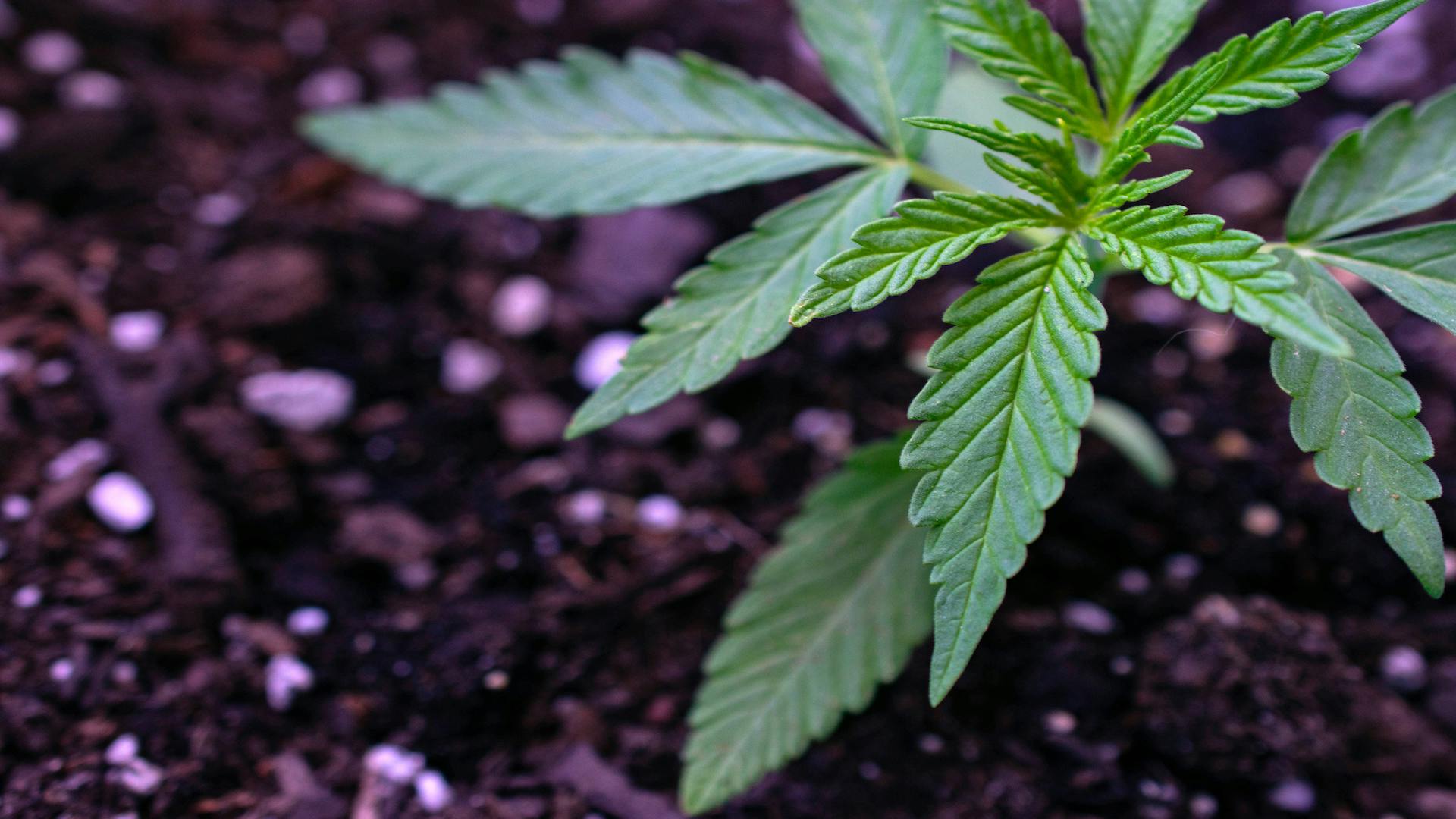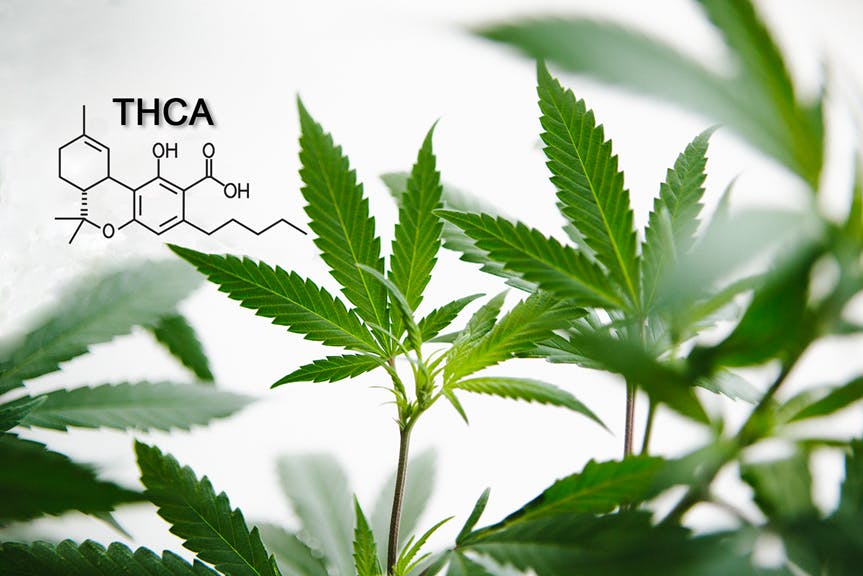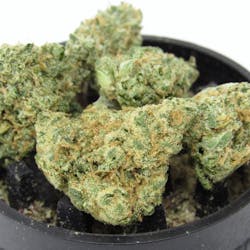By now you’re probably familiar with cannabinoids, especially the most common ones, THC and CBD. But you likely haven’t heard of cannabichromene, also known as CBC. Discovered over 50 years ago, CBC is considered one of the “big six” cannabinoids prominent in medical research. It doesn’t get as much attention, but CBC’s benefits are extremely promising.
CBC has the same origins as both THC and CBD do in that they all stem from cannabigerolic acid (CBGA). Cannabis plants produce CBGA, the precursor to three major cannabinoids: tetrahydrocannabinolic acid (THCA), cannabidiolic acid (CBDA), and cannabichromenic acid (CBCA).
The specific plant enzymes cascade and “direct” the breakdown product into one of the three lines. For CBC, it converts from CBGA into cannabichrome carboxylic acid (CBCA), and then finally to CBC after exposure to heat or ultraviolet light.
CBC Works With Other Cannabinoids
CBC is non-intoxicating, so it doesn’t produce a euphoric high like THC. The reason it is non-intoxicating is because it binds poorly to CB1 cannabinoid receptors in the brain. But CBC does bind with other receptors in the body, such as the vanilloid receptor 1 (TRPV1) and transient receptor potential ankyrin 1 (TRPA1), both of which are linked to pain perception. When CBC activates these receptors, increased levels of the body’s natural endocannabinoids like anandamide are released.
While CBC definitely has singular benefits, researchers also think that it seems to synergistically work with other cannabinoids, a term known as the entourage effect. This effect of THC and CBD working together is well-known, but whether other cannabinoids have entourage effects is not well understood.
CBC’s Medicinal Potential
The purported benefits of CBC have far-reaching implications. Below are a few medical conditions that may be alleviated by cannabichromene.
Cancer
Cannabichromene may be a powerful cancer fighter, and the reason might be its interaction with the body’s natural endocannabinoid, anandamide. CBC also appears to inhibit the uptake of anandamide, allowing it to remain longer in the bloodstream.
A recent study in which tumor growth was initiated in mice (two-stage mouse skin carcinogenesis model) showed cannabinoids might be effective in inhibiting both inflammation and tumor growth. Since anandamide has been shown to fight breast cancer in vitro and in vivo, this shows promise that CBC and other cannabinoids might one day be a chemopreventive agent.
CBC as a potential cancer fighter was first published in a 2006 study that looked at cannabinoids other than THC and their possible effects on cancer. While THC is known for its anti-tumor properties for several different forms of cancer, its powerful psychotropic qualities can make it difficult for chemotherapy use. So far, research has found CBC to be the second-most-potent cannabinoid at inhibiting the growth of new cancer cells (CBG was the most potent).
Pain and Inflammation
Cannabichromene has been shown to block pain and inflammation associated with collagen-induced osteoarthritis. Cannabinoids like CBC act on inflammation differently than non-steroidal anti-inflammatory drugs (NSAIDs) do, and don’t have the side effects of these medications. In another example of the entourage effect, CBC in combination with THC had significant anti-inflammatory response in a recent animal study; together, the two cannabinoids produced a much greater effect on inflammation than by themselves.
Brain Cells
In a 2013 mouse study, CBC had a positive effect on neural stem progenitor cells (NSPCs), a cell essential to healthy brain function. NSPCs became more viable when in the presence of CBC, and that shows promise because NSPCs differentiate into astroglial cells, the most important cells for maintaining brain homeostasis. The astroglial cells perform a whole host of functions, including neurotransmitter direction and defending against oxidative stress. Astroglia counteract many of these issues—oxidative stress, inflammation, toxicity—that create neurological diseases and brain pathologies like Alzheimer’s disease.
Acne
A research team that had previously shown CBD’s effect on acne studied other cannabinoids, including CBC, for the same effects. Indeed, CBC was shown to be a powerful inhibitor of acne. As a skin disease, acne is characterized by excess sebum production and sebaceous gland inflammation. It turns out that CBC exhibited powerful anti-inflammatory properties and also suppressed excessive lipid production in the sebaceous glands. CBC also reduced levels of arachidonic acid (AA), which is needed to create the lipogenesis. More research is needed, but CBC might just one day become a very powerful anti-acne treatment.
Depression
In another amazing display of the entourage effect, CBC appears to work in conjunction with both THC and CBD to deliver a trifecta of antidepressant properties.
The therapeutic promise of CBC is important and requires more research to determine its power by itself as well as with other cannabinoids working together for an entourage effect. Cannabis patients today are limited in the products available to them, but hopefully as new studies emerge and cannabis laws loosen, new medicines with a diversity of cannabinoids will soon become an option.






